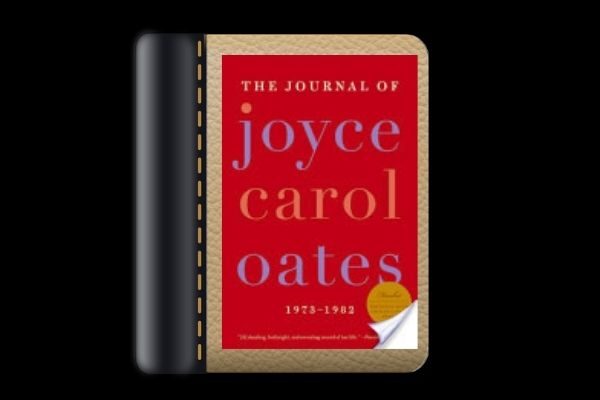
I came across The Journal of Joyce Carol Oates, a hardbound, 509 page glimpse into the private thoughts of an extraordinary writer. Intimate and unrevised.
In it are gems of wisdom–writer to writer, writer to reader–that make me want to run back and buy every copy in the store as gifts to my family and friends, just to show them what goes on in a writer’s mind.
Take parts of her April 26, 1976 entree, for instance.
- “If younger writers could anticipate what lies ahead after their years of arduous labor and their hopes and fantasies and sacrifices (if anyone still “sacrifices” anything for their art)…would they believe the effort was worth it?”
- “If it wasn’t for the satisfaction of writing as an end in itself, apart even from the money involved, I wouldn’t advise anyone to write. Not at all.”
- “The rewards won’t compensate for the suffering. The “rewards” are so mixed, so ironic. Why do you want to write if you really don’t want to write?”
And then entries about her novel, Bellefleur:
- “Bellefleur, Bellefleur. The abyss into which I plunge. It is eating away at my heart! A vampirous creation. Feeding it, daily, I am necessarily feeding myself–or am I?”
- “No sooner do I finish one little chapter (today, “Mt. Ellesmere”) than my mind leaps ahead to the next.”
- “Now that I have finished it I feel so pleased: as much with my new freedom as with the novel, the massive thing, itself.”
I open the journal at random, read a page or two, underline and savor.
June 27, 1981: “Success in a public sense is a punishment, not a reward. For it drains our energies, diffracts our attention. What I want to do is write: to write something strong, lasting, surprising, original…something that is, in any case, my own. My own language.”
To the non writer or the beginning writer, Joyce’s journal observations may sound depressing and discouraging, but for me they come across just the opposite. They assure me that I’m not alone, that all authors, yes, even the greats, go through periods of self doubt, when their craft eats away at their hearts, and when they wonder if they are any good and why, the hell, they are putting themselves through years of labor, the daily feeding of the craft. Do the rewards compensate for the suffering?
Yes, Joyce says. Writers write for the satisfaction of the writing itself, regardless of the years of feeding the “vampirous creation,” regardless of the “abyss” into which they plunge, regardless of the consequences.
Thank you Joyce, for reminding me that the rewards of writing are ultimately internal and cannot be measured monetarily. The spiritual rewards are beyond value.


such a parallel between writing and art making, the ironies abound! I mostly feel frustration and angst about painting yet have absolutely no choice in the matter…. I must paint. I am more and more aware of how creating and making a living are counter-intuitive to each other and I'm baffled in how to live this life as an artist and feed myself. Thank-you for bringing it to light. "If people knew how hard I worked to get my mastery, it wouldn't seem so wonderful at all."
Michelangelo
Hello "thepear."
There is indeed a parallel between writing and art making. And making a living with one's art often comes, but after a great expense of time and money and frustration and angst. Maybe if people knew how hard you worked at your mastery, they would be even more impressed!
This looks like a good one to pick up when I have some time. I loved teaching her short story "Where Are You Going, Where Have You Been." Students really got it. Her writing is so black and white, so spare and necessary. Thanks for bringing this book to my attention.
You're welcome, Rosi. You introduced your students to some fine writing.
Yes, it is a comfort to know we are not alone on our writing journey!
Hi Debra. Even though it often feels as if we are alone when we sit in front of our computers hour after hour, day after day, Joyce reminds us that this is also a choice, and the results, though not always pretty, include a deep satisfaction that we have followed our dreams.